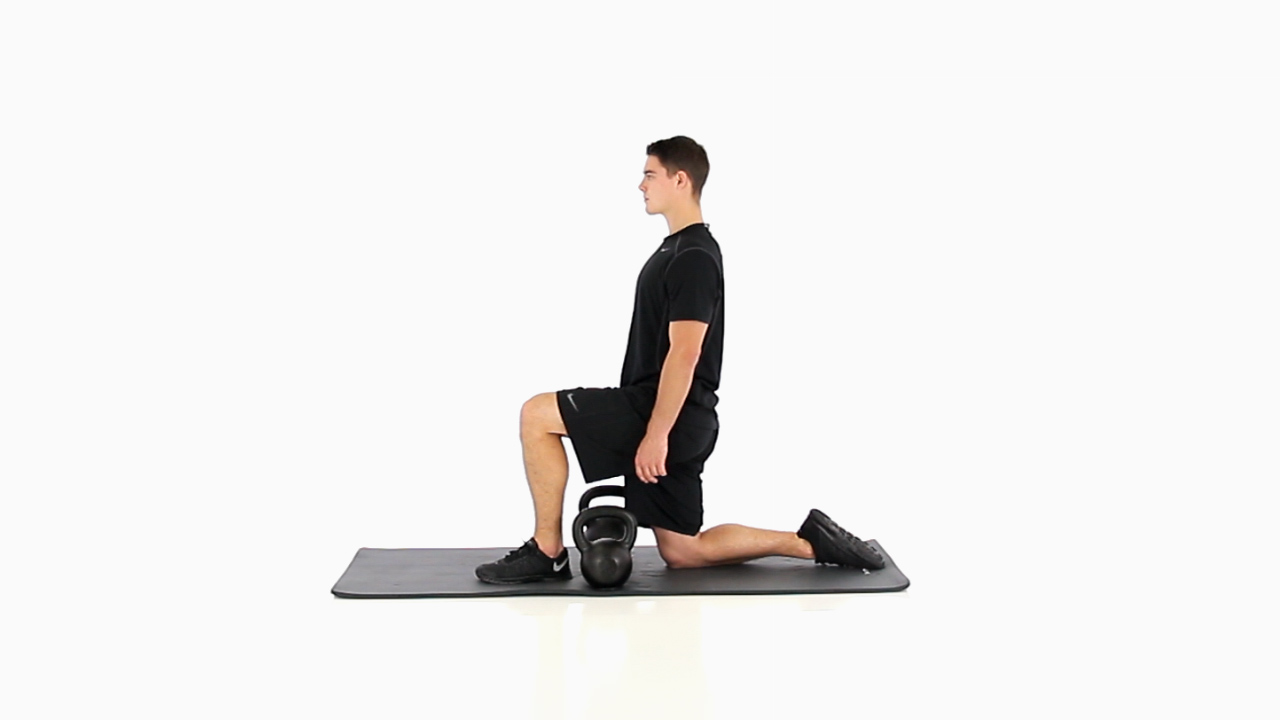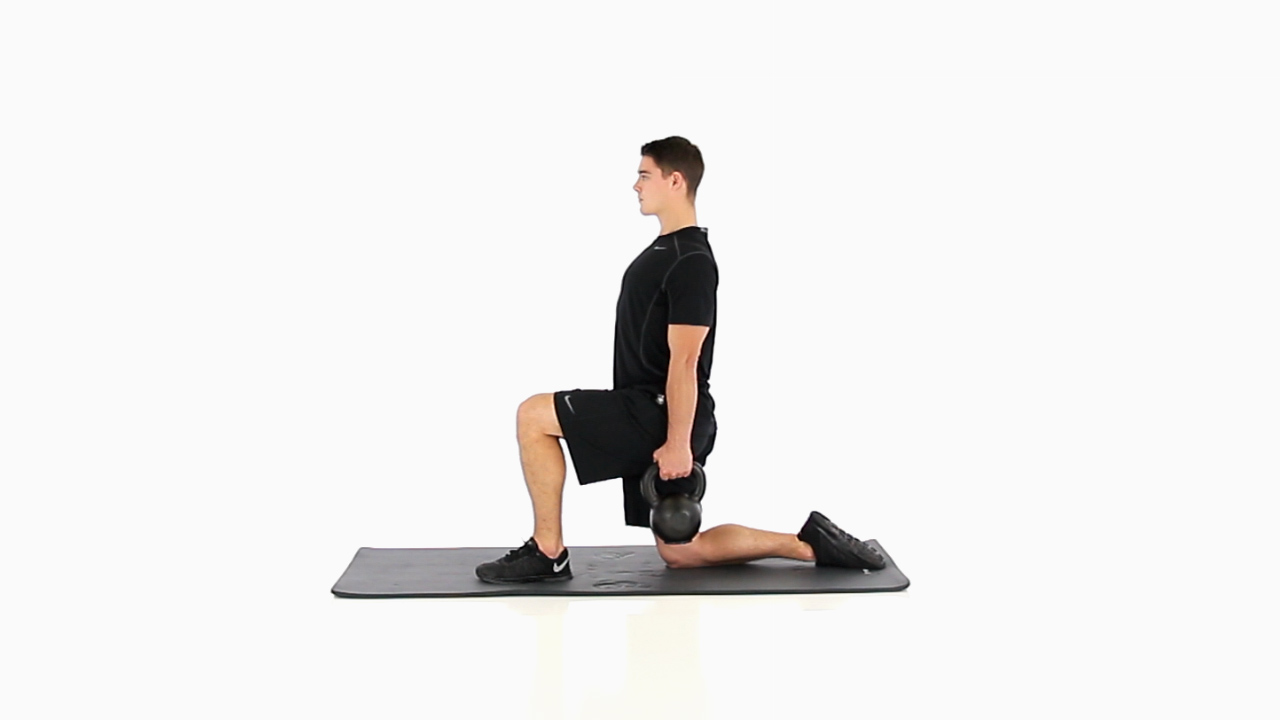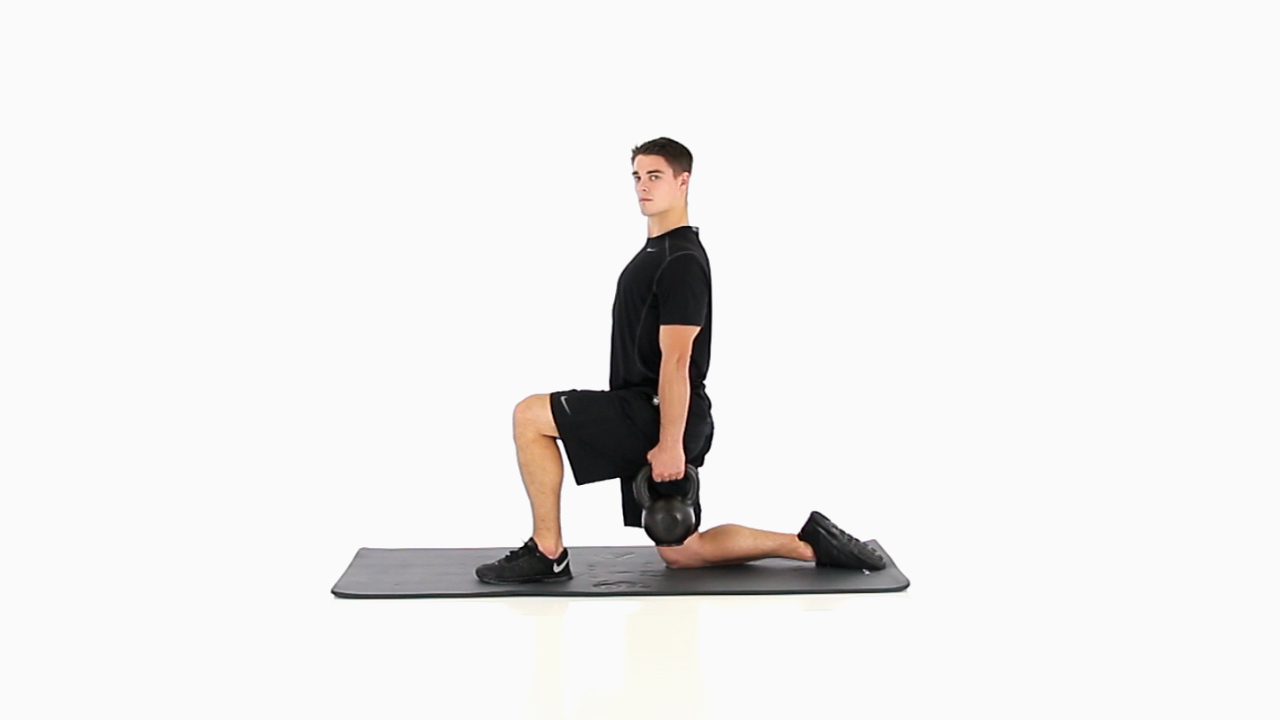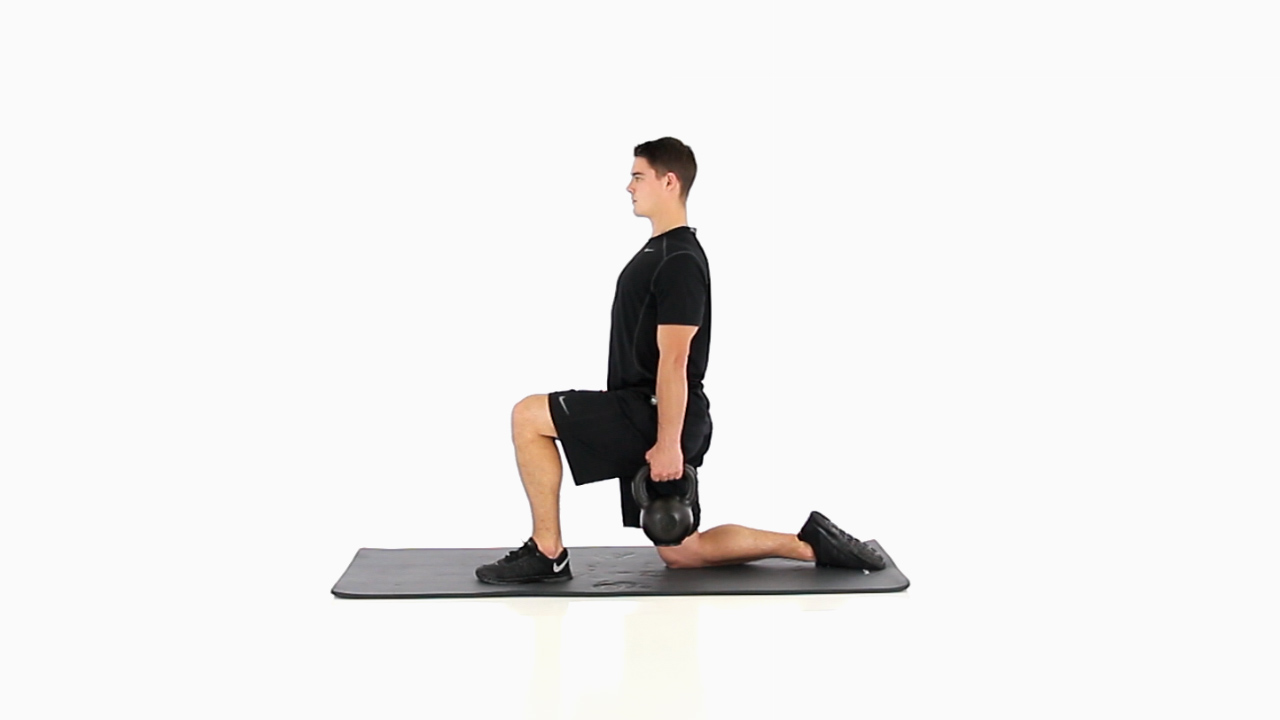This exercise helps develop dorsiflexion throughout a full range of hip, knee and ankle mobility.
Half Kneeling Turns Symmetrical Load
This self-limiting exercise helps to expose a lack of motor control and bilateral asymmetries in the half Kneeling position.
- Starting Position:
- Half Kneeling
Begin in a half kneeling posture by placing one knee down directly under the hip and the other foot should be in line with the knee, this will create the 90/90 position. Depending on the individual, the width of the front foot can be adjusted for balance. The narrower the foot is in relation to the knee, the greater the challenge. The front foot should feel as light as possible, enough to be able to pick it up and put it down. Throughout the exercises concentrate on staying as tall as possible creating a straight line from the ear, shoulder, hip, and down knee for proper posture alignment.
While in the Half kneeling posture begin by holding two kettlebells in both hands at the sides of you. Be sure to maintain the upright balanced posture and perform a series of turns:
1) Head Turns
Turn the head to the right and left in a smooth controlled manner maintaining the “perfect posture”. Begin with small turns and slowly add range but do not push into discomfort or increase the range so you have to compensate in any way.
2) Head and Shoulder Turns with stationary KB
Turn the head and shoulders to the right and left in a smooth and controlled manner maintaining the “perfect posture” and leaving the KB in front of the body. Begin with small turns and slowly add range but do not push into discomfort or increase the range so you have to compensate in any way. Pause at the end range to cycle a full breath.
3) Head and Shoulder Turns with moving KB
Turn the head and shoulders to the right and left in a smooth and controlled manner moving the KB in that direction (if you can turn far enough you may actually move the KB to the outside of the hip you are turning over) and maintaining the “perfect posture”. Begin with small turns and slowly add range but do not push into discomfort or increase the range so you have to compensate in any way. Pause at the end range to cycle a full breath.




Related Exercises
-
-
This is an upper body dynamic exercise in the single leg stance position.
-
This is a single arm upper body strength exercise while challenging lower body static motor control.
-
This exercise is used to increase resistive ability and assess right and left hip contribution in the hip hinge.
